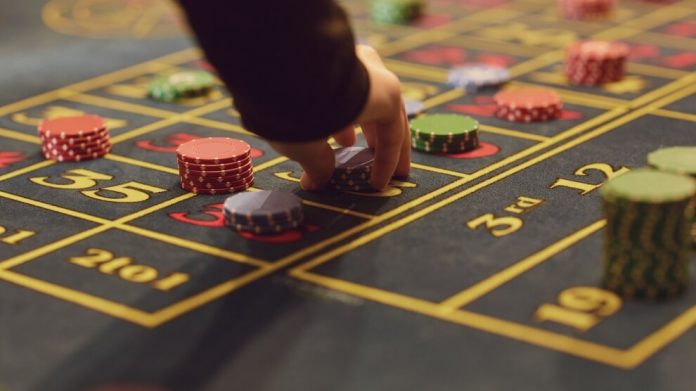This article is written by Shristi Roongta from Amity Law School, Kolkata. This article details the legal status of gambling, particularly in Goa. The article also talks about the use of casinos, tax revenue, and online gambling.
Table of Contents
Introduction
Gambling in India is a big topic. This topic is generally discussed more due to the heavy restrictions imposed on it. When it comes to gambling, India is not one among the countries where gamblers can easily find casinos. Out of 28 states, only 3 have legalized gambling activities. These states have also imposed certain restrictions on gambling, hence gambling is not completely legal in India.
What is gambling
Gambling is betting or staking something valuable with the awareness of risk and with a desire to gain, on the result of a game or uncertain event whose results are determined by chance or accident or by an unexpected outcome. The outcomes of gambling can be determined only by chances. Gambling is often defined as betting, gaming, or participating in an activity that will be a game of luck and not the sport of skill to win a much bigger amount of money or any other prize by wagering some amount of money. The most important legislation that regulates gambling in India is the Public Gaming Act, 1867. Initially, this legislation was applied to the ten States which were British controlled during that point in time but were further followed by every state in India. Although later on the States formed their own legislations.
In the case of Jay Video Games and Electricals v. the State of Gujarat, it was held in this case that the meaning of gambling is, “the act of wagering or betting” for money or money’s worth.
Gambling in India is restricted to selected activities such as lotteries and betting on horse racing. However, illegally restricted gambling takes place almost everywhere. These types of gambling result in various crimes such as corruption, betting of things apart from money, money laundering, etc. Legal gambling is one of the major sources of revenue for the respective state. The major states in India that have legalized gambling in casinos are Goa, Daman, and Sikkim.
Legal status of gambling
Gambling is illegal in India except for Goa, Sikkim, and Daman. As gambling is illegal in most of India, these states have made gambling legal with the formation of legal statutes.
Legal status in Goa
The state of Goa has allowed gambling after the formation of the Goa, Daman, and Diu Public Gambling Act, 1976. But small amendments were made to it by the government that made gambling legal in Goa. The government amended to allow the slot machines in five-star hotels and card-rooms in offshore vessels subject to prior approval and authorization of the government of Goa after the payment of a specified fee. The laws of gambling state that there is a need for specific skills, knowledge of the field, and the game is a must. The gambling laws in Goa are strict and the establishments that have proper licenses and permits are the only ones allowed to set up common gaming houses. In the year 1992, the state of Goa started releasing gambling licenses to luxury hotels, and the establishments with permits were allowed to run slot machines
In the year 1996, they were even permitted to start out table games like poker and roulette, with the principle that such games would only be played in cruise ships and were not allowed in land casinos.
Due to strict laws, there are only a few legal casinos in India. Goa has become known for its legal activity which attracts many people of India and other foreign countries. It translates into huge amounts of cash spent within the state of Goa, and large earnings for the locals, hotels and casinos owners, and also for the government. The government earns a lot of money from gambling taxes, they show interest in keeping these casinos in Goa. Also, they keep strict tabs on these institutions and have various laws for preventing any unlawful activities.
Legal status in other states
All the other states except Goa, Daman, and Sikkim prohibit gambling and hence it is illegal. The state of Sikkim made gambling legal after the enactment of the Sikkim Regulation of Gambling (Amendment) 2005. The Act authorizes the Government of Sikkim to inform the required areas where permission can be granted for running the casinos on payment of a specified fee. The Act legalizes online gambling like roulette, blackjack, pontoon, bingo, casino brag, and many other such games. Also, the Act in the year 2009, legalized online sports betting in the State.
Who has the authority to use casinos in Goa
There are a total of 16 casinos operating in the land of Goa and offshore casinos. While there are only three casinos in Sikkim and one in Daman. Although Goa is the hotspot of gambling in India, in terms of population, it is the smallest in the country. The key behind being successful within the casino business is that Goa may be a coastal state. Therefore, it allows offshore vessel casinos besides the land-based casinos. During the 90s, Goa faced a declining number of tourists since other destinations were attractive, hence the government made amendments to the Goa, Daman, and Diu Public Gaming Act, 1976 that made gambling legal on the Goa soil and Goa waters.
Being the smallest State with less population, the main source of income is tourism. Casinos are exclusively used by people who are local and foreign tourists. Goa residents are barred from using casinos since February 2020. In fact, the local residents before the ban mostly have not used casinos, and just 1% of people using casinos were not tourists. Hence, this decision did not have any impact on gambling revenues.
Tax revenue generated by gambling
Casinos play an important role in the tourism of Goa. The tax revenues from gambling have increased in the past few years. According to the center-state financial relationship, the government of goa is collecting gambling taxes. In the 2018-2019 fiscal year, the Goa government collected Rs 411 crore from offshore and land-based casinos. In the tax brackets, the casinos are at the highest level, with a rate of 28%. Also, in the year 2018, the licenses for both land-based and offshore casinos were increased. While the government of Goa also set up an application fee of $32.000. All of those can be a substantial revenue which is very helpful for a quicker gateway from the economic crisis caused by the Covid-19 pandemic.
Situation of online gambling in India
- Online gambling is any kind of gambling played over the internet. This includes virtual poker, casinos, sports betting, and etc. Online gambling for the most part in India is not exactly illegal but at an equivalent period of time, it cannot be considered fully legal either. It falls under the obscure grey area and therefore the complexity is merely increased by the very fact that every State in the country has the discretion only to rule on the matter. Nonetheless, all the legal websites here are where Indians can play online slots.
- The state of Sikkim to issue licenses to organizations had used this discretion for the purpose to line up such online casinos and gambling websites. But intervention from the central government stopped these activities. Only Sikkim residents can access online gambling sites licensed by the State. It cannot allow them to serve the other Indian States.
- This includes the residents of Goa. The state does not have a transparent law on online gambling despite being a hotspot for offline casinos. There’s a logical reason for this that the casino resorts and boats serve domestic and foreign tourists, not local residents. The local residents prefer other sorts of gambling such as lotteries, matka and in recent years, online casinos also. Though it is not strictly legal, online casinos in India are discrete and easily accessible, without any risk of social stigma usually related to land casinos.
- Due to this reason, many people across the country still post bets online. Goa is no exception. All of this is possible because popular online gambling websites like Betway and Royal Panda all are based in foreign countries where online gambling is legal. These websites are legal in the foreign countries where they are based and also accept bets from customers everywhere in the world. It’s clear that they especially cater to Indian customers as they give the option of representing the monetary value in Indian Rupees (INR).
- The State government of Goa, their counterparts in other states, and the Central government have all attempted to adopt measures to ban Indians from making bets on these international websites. The Government of India tried to stop this by introducing the Payment and Settlement Act, 2007. It was meant to stop direct deposits and withdrawals, making online betting much harder but it failed and they tried something else.
- The other thing they tried to implement was to control internet browsing by reaching internet providers. They tried to control the situation by using the Information Technology Act, 2000. Using the provisions of this Act, the government can instruct internet service providers to restrict and block access to certain websites. This list includes off-shore websites that might be used for online gambling. But the enforcement of these rules isn’t very efficient. Almost any internet connection in the country would not be able to access most of the online gambling websites.
What will be the future of gambling
The State government of Goa has plans to leverage the gambling industry to a new level. The blueprint for these plans is Macau, which is one of the most popular gambling destinations in the world. The mega-casino project is linked to the new airport project in Mopa. However, due to the Covid-19 pandemic, there was an impact on this project. It is believed that the online gambling market will get regulated and it can bring even more benefits to the budget of the government.
Conclusion
The laws of gambling in India are not very clear, rather it is confusing. Some matters are still grey areas in gambling. Although the judiciary has tried through various case laws to explain and provide transparency and clarity in the gambling laws. In this era of the internet, it has become much easier for people to access and participate in online gambling, and also due to the development of technology, people can easily participate in gambling activities. Due to the beautiful coastal location, casinos in Goa would have a better business than the rest of India. The casinos attract a large number of tourists in Goa and contribute a good amount of revenue to the government. Therefore, the government could establish casinos keeping the governance of the legislation.
References
- https://www.legalbites.in/legal-status-of-online-gambling-goa/
- https://www.onlinebetting.in/laws/goa/
- http://www.legalserviceindia.com/legal/article-4123-casinos-and-gambling-laws-in-india.html
LawSikho has created a telegram group for exchanging legal knowledge, referrals and various opportunities. You can click on this link and join:
 Serato DJ Crack 2025Serato DJ PRO Crack
Serato DJ Crack 2025Serato DJ PRO Crack









 Allow notifications
Allow notifications


